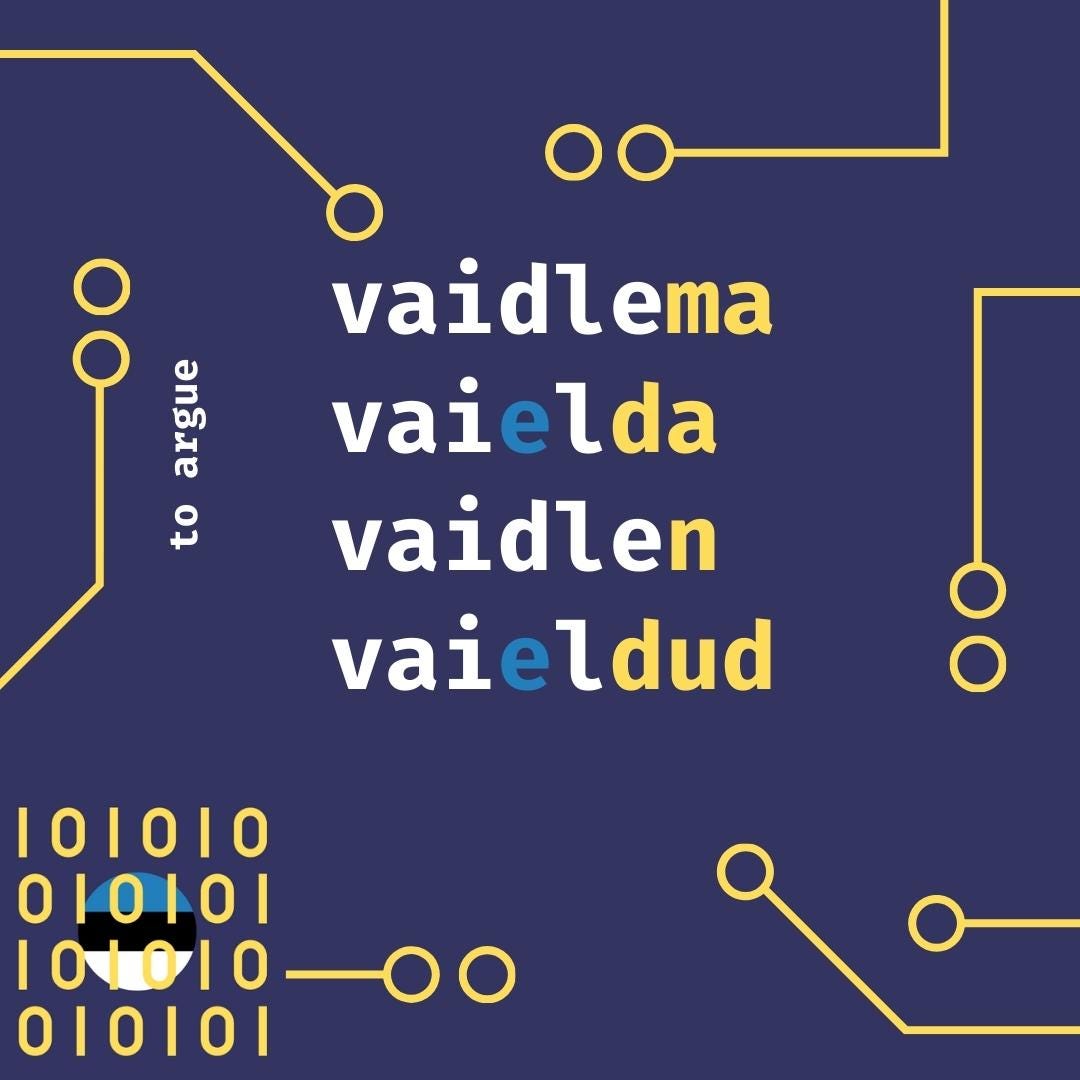Vocab: vaidlema
to argue
to argue, to debate, to dispute
Building blocks
vai- argue
-dle- frequentative (expressing repeated, frequent action)
-ma - infinitive ending
The Estonian word "vaidlema" is derived from the Proto-Finnic word *vaidëldak, which means "to argue" or "to complain.” The Proto-Finnic word is thought to be borrowed from Proto-Baltic (compare Latvian vaids - “problem” and Lithuanian vaidas - “argument, quarrel”)
How to use it
The person with whom you argue is in the comitative case (ending "-ga").
In English, we say "argue about" something, but in Estonian, we say "vaidlema mille üle" (to argue something over). In Estonian, the thing that you are arguing about is in the genitive case, followed by the word "üle" (over). For example:
Vaidlesime raha üle. (We argued about money.)
Examples
Ta ei julge vaielda oma ülemusega
Literally: “He doesn’t dare to argue his boss-with”
Idiomatically: “He doesn’t dare to argue with his boss”
Ta - Pronoun - Nom Sg, "He"
ei julge - Verb - 3P Present Negative Sg , "doesn't dare"
vaielda - Verb - da-Infinitive, "to argue"
oma - Pronoun - Genitive Sg, "his"
ülemusega - Noun - Comitative Sg, "boss-with"Ära vaidle minuga!
Literally: “Don’t argue me-with!”
Idiomatically: “Don’t argue with me”
Ära vaidle - Verb, 2P Imperative mood Negative Sg, "Don't argue"
minuga - Pronoun - Comitative Sg, "me-with"

